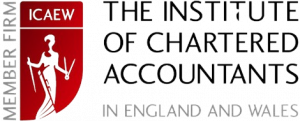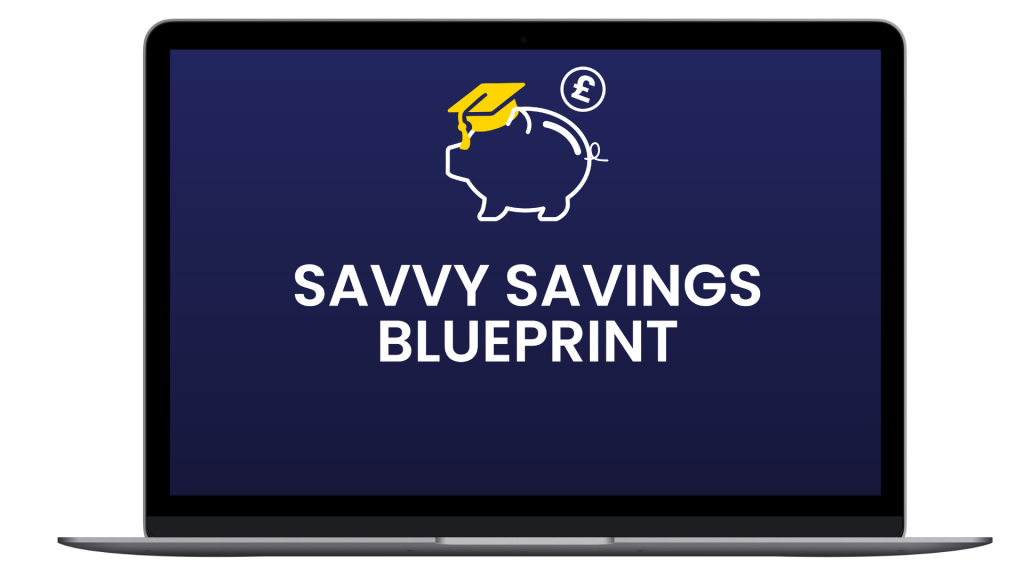The first step in financial planning is evaluating your current financial situation. This entails taking a thorough look at your income, debts, expenses, and savings. Understanding your financial situation provides a solid foundation for setting realistic goals and developing a strategy to achieve them. This initial assessment is critical for effective financial planning because it identifies areas for improvement and opportunities for expansion.
Financial planning is important because it lays out a strategy for your financial future. It enables you to set realistic goals, manage your income more efficiently, and save enough money for emergencies, retirement, and other life events. Creating a financial plan allows you to identify potential financial risks and opportunities, making it easier to make sound decisions. Finally, financial planning enables you to gain control over your financial situation, resulting in peace of mind and financial security.
For beginners, financial planning entails a few key steps: First, establish clear and attainable financial goals. Next, make a budget to help you manage your income and expenses efficiently. Then, set up an emergency fund to cover unexpected expenses. Invest wisely to increase your wealth over time, with a focus on long-term returns. Finally, keep reviewing and adjusting your plan as your financial situation and goals change.
Common financial planning mistakes include failing to set specific goals, failing to create or adhere to a budget, failing to establish an emergency fund, undervaluing the importance of insurance, and failing to review and adjust your financial plan on a regular basis. These oversights can jeopardize financial growth and security.
To invest wisely through financial planning, begin by matching your investments to your financial objectives and risk tolerance. Diversify your portfolio to spread risk among various asset classes. Make informed decisions based on research, not market speculation. Monitor and adjust your investments as your financial situation or goals change. Finally, consider consulting a financial planner to tailor your investment strategy to your specific requirements.
Basic and simple money-saving tips include creating a budget to track your spending and identify areas where you can cut back, setting specific savings goals to stay motivated, automating your savings to ensure consistency, avoiding impulse purchases by waiting before buying non-essential items, and comparing prices and taking advantage of discounts for necessary purchases. These strategies can help you accumulate savings over time without requiring major lifestyle changes.
Set specific goals and automate savings to ensure consistency. Keep track of and review your expenses on a regular basis to identify areas for savings. Avoid using savings for non-essential purchases and ignoring minor, recurring expenses, as they can have a significant impact on your financial objectives. Price comparisons and discounts can also result in significant long-term savings. Establishing and maintaining an emergency fund is critical for financial stability, as it eliminates the need to dip into savings unexpectedly.
Money-saving techniques are essential for future planning because they help to create a financial cushion that can protect against unexpected expenses and life events. Saving money allows people to achieve long-term goals like buying a house, funding education, or ensuring a comfortable retirement. Individuals who follow effective money-saving strategies can reduce financial stress, gain financial independence, and avoid debt. Furthermore, having savings allows for investment opportunities, which can increase wealth over time. Essentially, money-saving techniques lay the groundwork for a secure financial future, allowing you to navigate life’s uncertainties with confidence.
Consider these tips to save money on daily expenses: prepare meals at home rather than eating out, use public transportation or carpool to reduce commuting costs, switch to generic brands for groceries and household items, monitor and reduce energy usage to lower utility bills, and cancel unused subscriptions and memberships. These changes can result in significant savings without dramatically altering your lifestyle.
Yes, money-saving tips can help children understand the value of money and the importance of financial discipline from an early age. When children learn to save, they gain skills in goal setting, making wise spending decisions, and distinguishing between needs and wants. These lessons instill a sense of responsibility and help them prepare for financial independence in the future. Furthermore, involving children in simple saving strategies can help them become more conscious of their consumption and develop healthy financial habits that will last a lifetime.
Saving money is strongly recommended for adults; while not legally required, it is an important aspect of financial health and security. Regular savings help to manage unexpected expenses, achieve financial goals, and ensure a comfortable retirement. It also serves as a safety net, reducing financial stress during difficult times. Adults without savings may struggle to handle emergencies, afford opportunities, or secure their financial future. As a result, incorporating saving into one’s financial routine benefits long-term stability and peace of mind.
Money management is important because it allows people to effectively track their income and expenses, ensuring they live within their means and avoid debt. It aids in the establishment and achievement of financial goals, whether they are short-term, such as saving for a vacation, or long-term, like retirement. Effective money management also provides a buffer against unexpected expenses, reducing financial stress. Furthermore, it promotes financial discipline by guiding people toward better spending and saving habits, which are essential for building wealth and achieving financial security. Finally, effective money management practices lay the groundwork for a secure and prosperous financial future.
Money management can appear difficult at first, particularly without a clear plan or understanding of financial fundamentals. However, with the proper tools, resources, and habits, it becomes far more manageable. The challenge is often in changing spending habits and developing the discipline to save and budget effectively. However, by setting small, attainable goals, educating oneself on financial literacy, and utilizing available budgeting apps and tools, the process can be streamlined. As these practices become ingrained in one’s daily routine, effective money management becomes a habit rather than a challenge.
Learning about money management consists of a few key steps: Begin by educating yourself with books, online courses, and financial blogs on topics such as budgeting, saving, investing, and debt management. Use free resources provided by financial institutions and government agencies to get reliable advice. Participate in workshops or seminars that offer practical experience and personalized guidance. Apply what you learn to your daily financial decisions to gain real-world experience. Finally, consider speaking with a financial advisor for personalized advice, particularly in complex financial situations. This method can lay a solid foundation for money management skills.
Improving your money management skills requires a combination of education, practice, and discipline. Begin by educating yourself on financial fundamentals through books, online courses, and reputable financial websites. Create and stick to a budget to keep track of your spending and savings goals, allowing you to identify areas for improvement. Use financial tools and apps to help you manage your money more effectively. To stay on track, review your financial situation on a regular basis and make necessary adjustments to your budget. Consider seeking advice from financial professionals or mentors who can offer tailored guidance and insights. Consistently implementing these practices will gradually improve your financial management abilities.
To teach children about money management, begin by giving them a small allowance to manage, encouraging them to save for desired items. Introduce the concept of budgeting by assisting them in planning how they will spend their allowance. Use savings jars or piggy banks to represent saving, spending, and sharing. Engage in discussions about money, such as earning, saving, and the value of prudent spending. Finally, lead by example, as children frequently mimic their parents’ financial habits.
A money management course will teach you how to create and stick to a budget, understand and improve your credit score, develop effective saving strategies for short- and long-term goals, learn the fundamentals of investing to grow your wealth, and manage debt efficiently. Furthermore, such courses frequently cover retirement planning, tax optimization, and insurance options for safeguarding your financial future. This comprehensive understanding gives you the ability to make informed financial decisions, resulting in a stable and secure financial life.
Budgeting and expense tracking, understanding and improving credit scores, saving strategies for emergencies and future goals, investing basics and portfolio diversification, debt management and reduction techniques, retirement planning and future savings, tax planning and optimization, insurance and risk management, and financial planning and goal setting are all common topics covered in a money management course. These topics are designed to provide participants with a comprehensive understanding of personal finance, as well as the knowledge and tools they need to effectively manage their money and make informed financial decisions.
Money management courses can significantly help people save money by teaching them important financial skills and principles. These courses teach people how to budget, invest, save money, and understand credit, giving them the knowledge they need to make sound financial decisions. Individuals who learn to track expenses, set realistic goals, and plan for the future can avoid common financial pitfalls and increase the efficiency with which they save. Furthermore, these courses frequently cover topics such as debt reduction and income maximization, which improves one’s ability to save. Finally, money management courses can result in better financial habits and greater financial security.
Setting a clear budget to track your spending, automating savings to ensure a portion of your income goes directly into a savings account, and cutting back on non-essential expenses such as dining out, streaming services, or impulse shopping are all simple ways to get started saving money. Another strategy is to avoid overspending by paying for daily expenses with cash. Finally, reviewing and adjusting subscriptions and recurring payments can reveal unnecessary expenses, freeing up more money for savings. Starting with these simple steps can help you save money more easily and effectively.
Setting clear financial goals to guide your saving efforts, creating and sticking to a budget to manage spending, automating your savings to ensure consistent contributions to your savings account, cutting unnecessary expenses to free up more money for saving, and building an emergency fund to avoid having to dip into savings for unexpected costs are all common money-saving strategies. Furthermore, investing in high-yield savings accounts or other investment vehicles can help you build up your savings over time. These strategies, when combined, can significantly improve your ability to save money and achieve financial stability.
Consider the following tips for long-term wealth building: Start saving and investing early to benefit from compound interest. Diversify your investment portfolio to mitigate risk and maximize potential returns. To accelerate wealth growth, increase your savings rate on a regular basis through raises or bonuses. Pay down high-interest debt first to free up more money for savings and investing. Finally, continue to educate yourself on financial literacy so that you can make informed decisions that support your wealth-building goals. These strategies have the potential to lay the groundwork for long-term financial security and wealth.
Retirement planning should begin as early as possible, preferably in your twenties or as soon as you begin earning money. Starting early gives your investments more time to grow thanks to the power of compounding interest, increasing your chances of a financially secure retirement. Early planning also allows you to adjust your savings and investment strategies as life changes and financial challenges arise. Furthermore, starting retirement planning at a young age promotes financial discipline and prioritizes long-term financial well-being.
The first step in retirement planning is to define your retirement goals, such as the age at which you intend to retire and the lifestyle you envision. This entails estimating your future retirement expenses based on your desired retirement lifestyle while accounting for inflation, healthcare costs, and any specific plans such as travel or hobbies. Understanding these goals aids in developing a realistic savings and investment strategy tailored to your future needs.
Consider seeking advice from a certified financial planner or a retirement planning advisor. These experts can assess your financial situation, assist you in setting realistic retirement goals, and create a customized plan to achieve them. Furthermore, tax advisors can offer valuable advice on tax-efficient savings strategies. It’s also a good idea to consult with a lawyer about estate planning and making sure your retirement plan is in line with your long-term financial and personal objectives. To get reliable advice, choose advisors with reputable credentials and a track record of success in retirement planning.
Start saving as soon as possible to benefit from compounding interest over time. Contribute to retirement accounts on a regular basis, such as 401(k)s or IRAs, to maximize employer match and tax benefits. Increase your savings rate whenever possible, particularly after receiving a raise or bonus. To save more money for retirement, keep your living expenses at or below your means. Finally, review and adjust your retirement plan on a regular basis to ensure that it remains consistent with your changing financial goals and market conditions, thereby optimizing your savings strategy for a secure retirement.
While it is possible to plan for retirement without a financial coach, hiring one can be advantageous, particularly for those who lack confidence in their financial knowledge or have complex financial situations. A financial coach can give you personalized advice, help you set realistic retirement goals, and create a strategy to achieve them. They can also provide accountability, encouragement to stick to your financial plan, and advice on a variety of financial issues, including investing and tax planning. However, if you have a solid understanding of personal finance and can maintain discipline in your savings and investment strategy, you may be able to effectively manage your retirement planning on your own. Finally, the need for a financial coach is determined by your unique circumstances, financial knowledge, and level of comfort managing your finances.
Yes, you can achieve your financial goals without using a financial coach. While guidance can be useful, many people achieve success through self-education and disciplined financial habits. Tools and resources, such as a conceptual “Savvy Savings Blueprint,” can provide structured approaches to effective money management, allowing for immediate savings without incurring additional costs. You can maintain financial stability and achieve your goals by focusing on the fundamental principles of smart financial management, such as avoiding overspending, avoiding unnecessary debt, and prioritizing savings. This self-directed approach not only enhances your financial planning and money management abilities, but it also lays the groundwork for future financial milestones, such as retirement planning.
A financial coach guides people through their financial lives, focusing on improving financial literacy, setting realistic goals, and developing effective money management strategies. However, it is entirely possible to undertake this journey on one’s own. Individuals can learn to save money effectively by using resources such as the conceptual Savvy Savings Blueprint, which addresses the root causes of their financial habits. This strategy promotes self-sufficiency in avoiding overspending, maintaining stability, and laying a solid foundation for future financial planning, including retirement. Essentially, with the right tools and a dedication to self-education, anyone can become their own financial coach, achieving their objectives through disciplined saving and spending.
To become your own financial coach, you must cultivate specific qualities. A commitment to learning and understanding the fundamentals of personal finance is required. Discipline and patience are essential for implementing and sticking to your financial plan, allowing you to save money while avoiding impulse purchases. Problem-solving skills will allow you to address the underlying causes of financial problems rather than just the symptoms. Finally, being proactive in seeking out resources and communities, such as those inspired by the Savvy Savings Blueprint, can help you achieve financial independence, stability, and long-term planning, including retirement.
Becoming your own financial coach begins with a commitment to understanding personal finance principles, such as budgeting and investing. Create a plan that prioritizes saving, using tools and strategies that are consistent with your goals, such as those found in a conceptual guide like the Savvy Savings Blueprint. Address financial habits by focusing on solutions that address the underlying causes of problems, resulting in long-term stability. Engage in communities or forums where you can share ideas and experiences to enrich your journey. This approach not only eliminates debt and overspending, but it also lays the groundwork for advanced financial planning and a secure retirement.
No, hiring a financial coach isn’t required to achieve your financial goals. Self-education and proactive financial management can help you achieve success. By becoming acquainted with basic money management principles, such as those found in guides such as the Savvy Savings Blueprint, you will be better equipped to save effectively, address financial issues head on, and connect with peers for mutual support. This self-guided approach promotes debt prevention, financial stability, and the development of planning and management skills, all of which are essential for a secure retirement. Finally, the key to financial success is disciplined saving and spending, which can be accomplished without the need for external coaching.


















